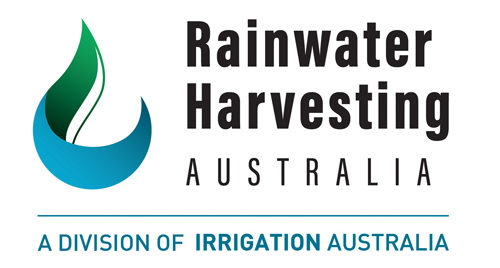RAINWATER HARVESTING AUSTRALIA: FORGING AHEAD
Rainwater Harvesting is becoming increasingly prevalent in Australia. In fact, the ABS tell us more than one in four Australian homes rely on water from rainwater tanks to supply their households. Australia needs an authority body that can bridge the gap between what people know about rainwater harvesting, and how they mobilise it as a resource in their own homes. Rainwater Harvesting Australia (RHA) is governed by a vision to serve as that peak body; with a mission to act as a knowledge and guidance provider in urban and regional areas surrounding all-things-rainwater-harvesting.
2020 is slated to be a productive year for RHA. Indeed, 2019 saw the organisation’s aim – of improving the health, environmental and economic welfare of the Australian people – enshrined in strategic initiatives, marketing efforts, and training modules.
STRATEGIC INITIATIVES
RHA’s ‘Residential Design Specification’ solidified its status as the ‘go-to’ guideline for above-ground rainwater harvesting systems. A joint initiative with Urban Water Cycle Solutions (UWCS), the Specification has been and will continue to be promoted as a prevailing rainwater harvesting document. An extension of this was the release of a ‘Care and Maintenance Factsheet’ for use across Australia. Meanwhile, an ‘Industry Problems Questionnaire’ was circulated to installers and service agents in the hope of learning more about their perceptions of the industry, as well as establishing issues they have encountered with installations. In 2020, the Committee will persist in providing technical support and knowledge. There is still much work to be done around operational concerns, despite the National Construction Code 2019 designating above-ground rainwater systems as ‘low hazard’. Rainwater harvesting’s recognition – with its own section – in the Code, is a significant move to distinguishing it as an important domestic resource. In 2020, RHA hopes to be involved in a research grant, to ensure the consolidation of all rainwater harvesting research into one comprehensive technical/knowledge guide.
Water needs to get on the agenda, and it deserves the same caliber of attention as energy. That’s why RHA will be seeking to join the Australian Sustainable Built Environment Council (ASBEC); to engender progress on a national scale. In 2019, the International Commission for Irrigation and Drainage (ICID) – a global working group dealing with water – had its conference in Bali. RHA will lead the rainwater harvesting segment of this year’s conference in Sydney. Australia is the global leader in rainwater harvesting, and RHA delivers on this by supporting further research and product development. In 2020, at the state level, RHA intends to see working, effective committees Australia-wide. These modes of influence will ultimately be leveraged to increase engagement with councils and water authorities, and thereby effect decision making.
MARKETING
In 2019, RHA attended the Irrigation Australia Gold Coast Expo and the Irrigation Conference Western Australia; real-world activities that may be reinforced by bolstering RHA’s online offering. Indeed, the ‘Rainwater Club Australia’ Facebook page was created and reached upwards of 100 users. Moving forward, RHA plans to increase the page’s reach, as well as enhance the organisation’s professional brand at large through improvements to its website and social media presence. In 2020, establishing a database of interested parties will be key. The goal is to augment content creation and ‘get the word out’ – to councils, water authorities, and broader communities.
TRAINING
2019 training is best encapsulated in the RHA Training Module. The Module explored ‘Pre-Tank’ (Jackie Hammond), ‘The Tank’ (Toby Peacock), and ‘Post-Tank’ (Mike Thompson) care and conditions and was administered by IAL via its online platform. Peter Coombes likewise directed two videos: ‘The Treatment Train’ and ‘Stormwater Impact of Rainwater Harvesting’. The former, was accompanied by a summary document designed to synthesise Professor Coombes’s research and bust myths around rainwater harvesting health concerns. In 2020, training will be refined and developed through a Cert III competency, which will form a facet of IAL’s Certification Program and be absorbed into a Certificate III qualification.
In all, 2019 was a successful year for RHA. It highlighted a demand for the provision of technical knowledge and contrived several possibilities to facilitate engagement with stakeholders. In 2020, RHA plans to capitalise on these opportunities and make strides in its influence, marketing and training that are compatible with its status as a leading rainwater harvesting authority.
